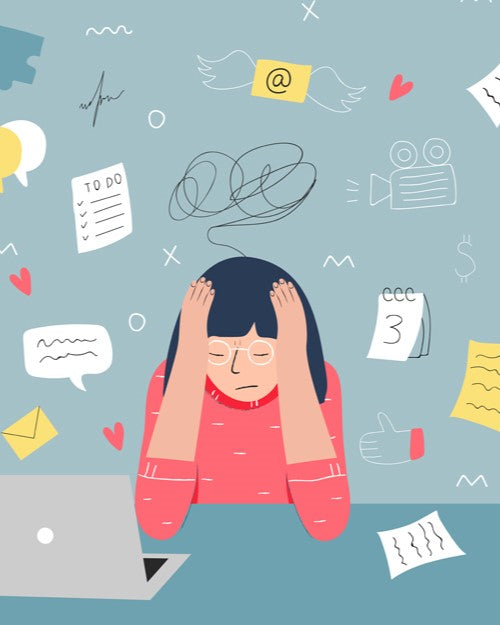Sleep plays a crucial role in stress management, and a good night's sleep can significantly help reduce stress and its impact on your physical and mental well-being. Here's how sleep aids in stress management:
-
Stress Hormone Regulation: Adequate sleep helps regulate stress hormones, such as cortisol. When you sleep, your body can reset its stress response systems, preventing the overproduction of stress hormones. This can lead to reduced feelings of stress and anxiety.
-
Emotional Resilience: Quality sleep enhances your emotional resilience and ability to cope with stress. Sleep deprivation can make you more emotionally reactive and sensitive to stressors, while well-rested individuals are better at regulating their emotions and staying calm under pressure.
-
Improved Problem-Solving: Sleep is essential for cognitive functions like problem-solving and decision-making. When you're well-rested, you can approach challenges with a clearer and more rational mindset, reducing the feeling of being overwhelmed by stressors.
-
Enhanced Focus and Concentration: Sleep improves your focus and concentration, helping you better manage tasks and responsibilities. This reduces the stress associated with feeling scattered or unable to meet demands.
-
Physical Health: Quality sleep contributes to better physical health. A well-rested body is better equipped to fight off illnesses and recover from stress-related physical symptoms.
-
Restorative Processes: Sleep is the body's natural way of restoring and repairing itself. During deep sleep, the body repairs and rejuvenates tissues, muscles, and the immune system, allowing you to recover from the wear and tear of daily stressors.
-
Mood Regulation: Sleep has a significant impact on mood. Inadequate sleep can lead to irritability and a negative outlook, making stress feel more overwhelming. Quality sleep helps maintain a positive and balanced mood.
-
Stress Reduction: Engaging in relaxation and stress reduction techniques before bedtime can improve the quality of your sleep. Practices like mindfulness, meditation, and deep breathing can help calm your mind and reduce the physical effects of stress, making it easier to fall asleep and stay asleep.
-
Emotional Processing: Sleep is a time for emotional processing and consolidation of memories. It allows you to process and make sense of the day's events, helping you better understand and manage the sources of stress in your life.
-
Better Coping Strategies: A well-rested mind is more capable of adopting effective coping strategies when faced with stress. You can approach challenges with a more positive outlook and a proactive mindset.
In summary, sleep is a foundational element of stress management. When you prioritize and maintain a healthy sleep routine, you can better handle the challenges of life, reducing the negative impact of stress on your physical and mental health. If you're struggling with sleep or stress, consider seeking guidance from a healthcare professional or therapist who can provide tailored advice and support.




















































































